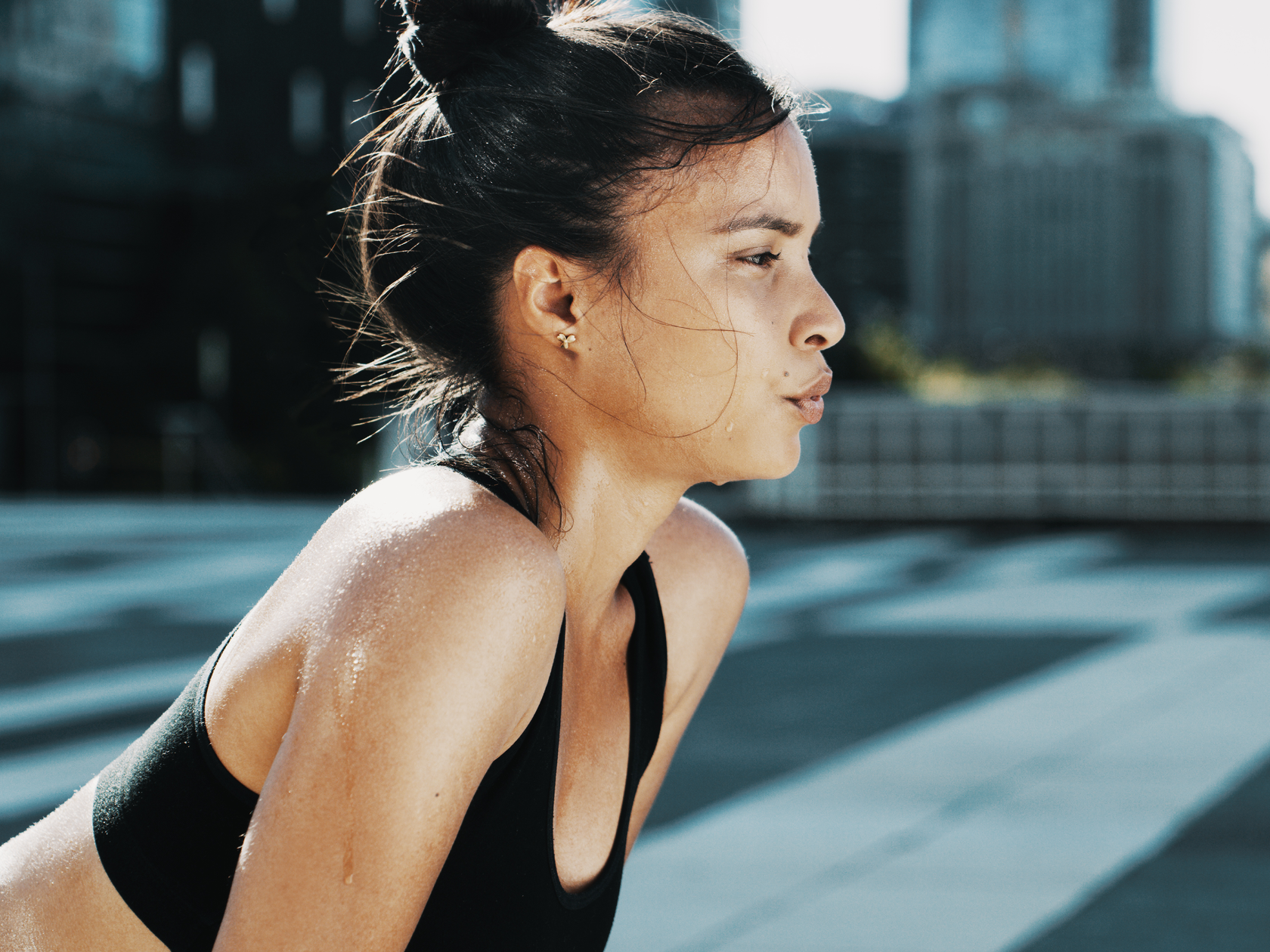Take care when exercising in the heat, whether you’re running in the afternoon sun or strength training without aircon, with these expert tips.
The sun was all everyone was asking for. After an entire five months of rain, cold and puffer coats (yep, the thermals were even out in May), all people wanted was to leave the house without an umbrella and a jacket. But, rejoice, the sunshine has finally arrived – albeit in June.
Yet, when the temperatures soar, your exercise routine often goes out of the window. Hitting the gym or throwing yourself into a home workouts aren’t usually the first thing you fancy doing – not only because you’ve got very important park plans that take priority, but also because everything feels hot and sticky, and the weights or distances feel unbearably hard compared to a few days ago when the weather was more mild.
You may also like
The UK’s best lidos and outdoor swimming pools
The good news is that it’s not just your imagination: “The human body is an incredibly inefficient organ, in that when we exercise only about 25% of energy is used for movement – the other 75% is used for heat production,” says Professor Mathew Wilson, head of sports medicine for HealthcareUK.
This means that a 5K run in the blazing sun really is harder than in cool, breezy weather because of the ‘thermo regulatory stress’, which makes your cardiovascular system work extra hard. “The body is clever and sends more blood to circulate through the skin in order to cool itself, however this means less blood for your muscles and results in a higher heart rate,” explains Susie Wright, therapies manager at the Princess Grace Hospital.
“When there is high humidity too, the stress on the body increases as it means sweat does not evaporate as easily from your skin, resulting in your body temperature rising.”
Just like your brain can struggle to concentrate on more than one thing at a time, the body can be too preoccupied with keeping cool to up the pace. Meaning if you do push harder, your body will be working in overtime.

However, if you enjoy exercising and want to get all of the amazing benefits of moving your body, you shouldn’t just stop all of your workouts for the summer months because of the heat – but it is important to make modifications to how you train. “If you don’t take extra care when exercising in hot weather, the body can suffer heat related illness,” says Susie. “The most common symptoms of heat illness are muscle cramps, vomiting, nausea, weakness, headaches, fainting, altered mental states, sweating and cold, clammy skin.”
Of course, extra hydration is crucial. But when it comes to switching up your workout routine, Susie says that the changes should simply start with the time you exercise – avoiding midday sun and picking shaded areas. “We simply need to minimise heat exposure,” adds Dr Wilson. “It sounds really stupid to say, but don’t go for a run in the heat of the day, when the sun is strongest.”
Then, consider switching up the type of exercise you’re doing. Professor Wilson explains that doing strengthening or muscular training in the heat can actually boost your performance. “In anything from the 1500 meter to marathon length runs, we see a drop in performance of up to 5%. But in strength and power sports, like 100 metres or 200 metre sprints, we see great times in the heat.”
That’s because muscles thrive when they’re warm, so being able to be flexible with your workout routine is important. “Doing short bursts of exercise is better than long sessions during hot weather,” says Susie. “Remember that a 20 minute workout has positive health effects and it is the number of days you exercise that matters most. If you normally run, consider a brisk walk instead, and yoga and pilates are good forms of exercise to consider.”
You may also like
Are you exercising too much during lockdown? Why it’s time to turn off “beast mode”
The most important takeaway of all of this is to show your body a bit of compassion. It’s annoying that you might not be running as fast or lifting as heavy or jumping as high, but it’s not your fault that there are external factors working against you. “Exercising in hot weather puts extra stress on the body – so just know that less is more,” agrees Susie. “If you experience any symptoms of heat related illness, stop exercising and seek air-conditioned comfort fast. If symptoms persist, you should seek medical advice.”
So, bookmark the weather forecast, plan accordingly and take some extra rest days to have picnics in the park this summer.
Follow @StrongWomenUK on Instagram for the latest workouts, delicious recipes and motivation from your favourite fitness experts.
Images: Getty
Source: Read Full Article
